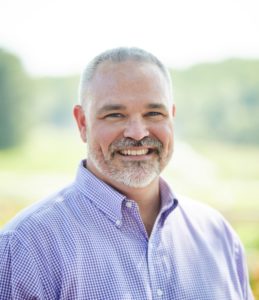In 2018, Crossnore School & Children’s Home launched the Center for Trauma Resilient Communities, after learning from many years of working with children who have survived – and thrived – a wide range of childhood traumas. Our work at the Center is helping organizations, collaborations, and communities reframe their work. We are taking trauma-informed care from a knowledge-based concept to actionable processes. These processes transform organizational cultures and community service infrastructures into trauma resilient, healing-focused communities. What we have learned from working with kids in crisis has the potential to transform how our organizations and institutions are structured.
In 2018 the NC General Assembly created the Child-Wellbeing Transformation Council, on which I am pleased to serve as a member. Its ambitious goals include:
(1) Mapping the network of child-serving agencies and organizations in the State.
(2) Cataloging examples of failures in coordination, collaboration, and communication in the context of child welfare.
(3) Reviewing the work of bodies similar to the Children’s Council operating in other states to identify promising practices and focus areas for the Children’s Council’s work.
(4) Monitoring changes in the social services and child welfare system associated with reform and regional supervision.
(5) Identifying gaps in coordination, collaboration, and communication related to all publicly funded child serving programs.
(6) Recommending changes in law, policy, or practice necessary to remedy gaps or problems impacting coordination, collaboration, and communication among publicly funded child-serving agencies.
Our charge as a Transformation Council is to monitor changes in the child welfare sector and look to build a more cohesive and aligned service system. There is much work left to do, and that work is more comprehensive than any one department or service sector can accomplish alone. To accomplish this critical transformation that will impact the lives of so many of North Carolina’s children, we must leave behind what is not working, and use a new frame to think about our work.
In our last meeting, we heard from the Milken Institute School of Public Health from George Washington University. Their “Building Community Resilience” model is currently being implemented in several cities across the country. Their work resonates with our experience at the Center for Trauma Resilient Communities.
Research and experience have proven that it is not enough to address the individual traumas that our children and adult clients have experienced. We must also work to address the community conditions that lead to disparate outcomes for some families (see the “Pair of ACEs” graphic below). This should be the new frame for all our work. As service providers, we must incorporate research-based trauma responsive care in all our services. In addition to implementing well-established trauma-informed clinical services, we must also filter all our individual services through the lens of healing individual trauma and building resilience.
As we look upstream beyond the reality of Adverse Childhood Experiences (ACEs) and individual trauma, we need to address the community conditions that create and exacerbate individual adversity. Toxic stress and adversity affect communities in the forms of racism, systemic inequality, poverty, community violence, lack of high-quality affordable housing, and lack of economic opportunity, just to name a few. The Social Determinants of Health model can help coordinate our work to stem the tide of negative outcomes for our communities. The parent trying to get sober and regain custody of their children cannot reach success without adequate housing and opportunities to earn a living wage. The domestic violence victim trying to break cycle of violence for their family cannot be safe unless their community is also safe from violence.
Adversity and toxic stress must be addressed at the individual level (trauma-responsive care) and at the community level (social determinants of health). No longer can we healers ignore the reality that healing must take place on both levels – within the hearts and minds of our individual clients, AND within the fabric of our communities. The work of the Child Well-Being Transformation Council, and our work at the Center for Trauma Resilient Communities, are aimed at building a new infrastructure of resilience for each hurting person and for all our communities.
Brett A. Loftis JD, is the CEO of Crossnore School & Children’s Home. Learn more about Crossnore and the Center for Trauma Resilient Communities here.
Support NC Child’s work for nurturing homes & communities. Click here to make a donation today.

